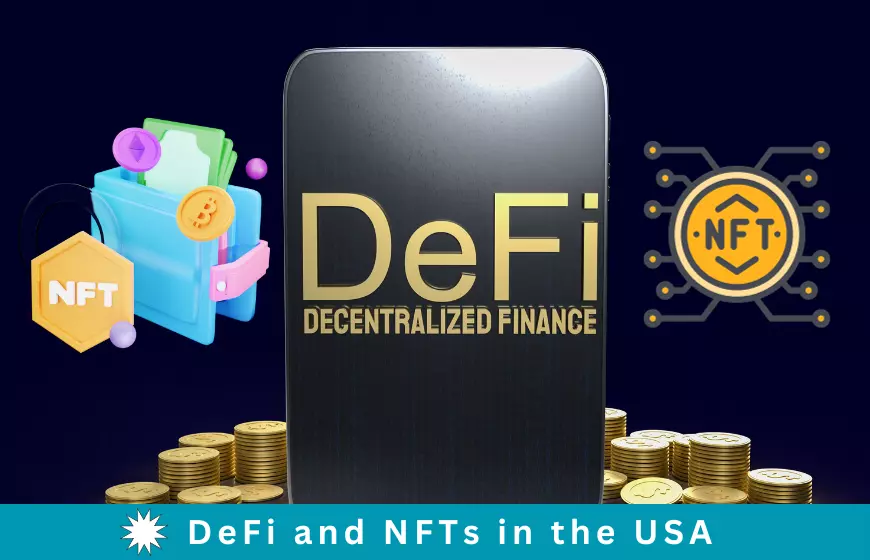The intersection of Decentralized Finance (DeFi) and Non-Fungible Tokens (NFTs) has ushered in a new era of financial innovation and digital ownership. These technologies have the potential to reshape traditional financial systems and redefine how we perceive and trade digital assets. However, with great potential comes great responsibility, and in the case of DeFi and NFTs, that responsibility often takes the form of navigating the complex regulatory landscape. This article delves into the nine crucial regulatory considerations that participants in the DeFi and NFT space must be aware of when operating within the United States.
1. Securities Regulations:
One of the foremost concerns in the DeFi and NFT space is the classification of these assets as securities. This determination is a pivotal one and often hinges on the application of the Howey Test, which examines whether an asset represents an investment of money in a common enterprise with an expectation of profits derived from the efforts of others. Many DeFi tokens and NFTs could potentially fall under this classification, leading to registration requirements with the Securities and Exchange Commission (SEC). It’s imperative for DeFi projects and NFT creators to seek legal counsel to navigate this intricate landscape.
2. Anti-Money Laundering (AML) and Know Your Customer (KYC) Requirements:
In a bid to combat financial crimes, DeFi platforms facilitating digital asset exchange and NFT marketplaces are required to adhere to Anti-Money Laundering (AML) and Know Your Customer (KYC) regulations. These regulations are enforced by the Financial Crimes Enforcement Network (FinCEN) and mandate that these platforms implement rigorous customer identification and reporting procedures. It’s essential for DeFi developers and NFT marketplaces to establish comprehensive AML and KYC mechanisms to ensure compliance and build trust with regulators.
3. Taxation:
The Internal Revenue Service (IRS) has progressively taken an interest in taxing cryptocurrency transactions, and this extends to DeFi and NFTs. Participants in these ecosystems must report income and capital gains, and NFT creators are obliged to report income from sales. Given the complexities of crypto taxation, consulting with a tax professional is indispensable to ensure compliance and minimize tax liabilities.

4. Money Transmission Regulations:
DeFi platforms that facilitate the transmission of funds or act as intermediaries might find themselves subject to state-level money transmission regulations. The specific requirements can vary from one state to another, and depending on the platform’s operations and user base, it might need to obtain money transmission licenses or exemptions in various states.
5. Intellectual Property and Copyright:
NFTs, which frequently represent digital art, music, and other digital assets, raise significant concerns related to intellectual property and copyright. Buyers should be aware that purchasing an NFT does not necessarily confer complete ownership of the underlying content. Creators, buyers, and platforms must be diligent in guarding against potential infringement issues, thereby safeguarding their rights.
6. Securities Exchange Regulations:
DeFi platforms that provide decentralized token trading services might inadvertently find themselves subject to securities exchange regulations. Complying with these regulations can be especially challenging in a decentralized environment, and DeFi projects must exercise caution and thorough understanding to navigate this intricate terrain.
7. Commodity Regulations:
In certain scenarios, DeFi tokens and NFTs may be classified as commodities, falling under the jurisdiction of the Commodity Futures Trading Commission (CFTC). Recognizing whether your token or NFT qualifies as a commodity is pivotal in determining regulatory compliance.
8. Consumer Protection:
The DeFi and NFT ecosystems are not without their risks. Fraud, scams, and deceptive practices threaten users. Ensuring consumer protection is a significant concern, and platforms and projects must take proactive measures to protect their users and provide transparency, thereby fostering trust in these nascent technologies.
9. Cross-Border Regulations:
DeFi and NFT transactions often transcend international borders, making international regulatory considerations a vital aspect of compliance. The need to adhere to foreign regulations and the potential for conflicts of law underscore the importance of operating responsibly in a globalized digital ecosystem.
Conclusion
DeFi and NFTs offer a tantalizing glimpse into the future of finance and digital ownership. However, their potential cannot be fully realized without a comprehensive understanding of and adherence to the evolving regulatory landscape. DeFi projects, NFT creators, and users must collaborate closely with legal and compliance experts to ensure they stay on the right side of the law. In doing so, they contribute to the legitimacy and continued growth of these transformative technologies. The regulatory environment is ever-changing, and to succeed in the DeFi and NFT space in the United States, staying informed and proactive is of paramount importance.
 CryptoZink Where Innovation Meets Investment
CryptoZink Where Innovation Meets Investment

2 comments
Pingback: The Ultimate Guide to Ensuring the Security of the Best Crypto Wallet - CryptoZink
Pingback: The Ultimate Guide to Ethereum: Everything You Need to Know - CryptoZink